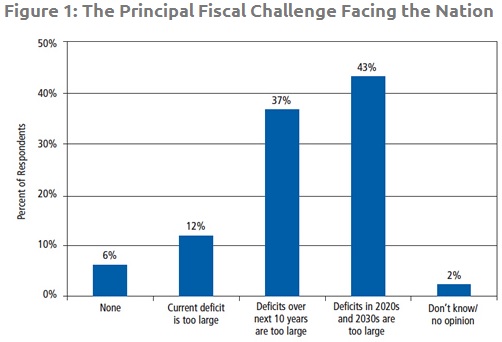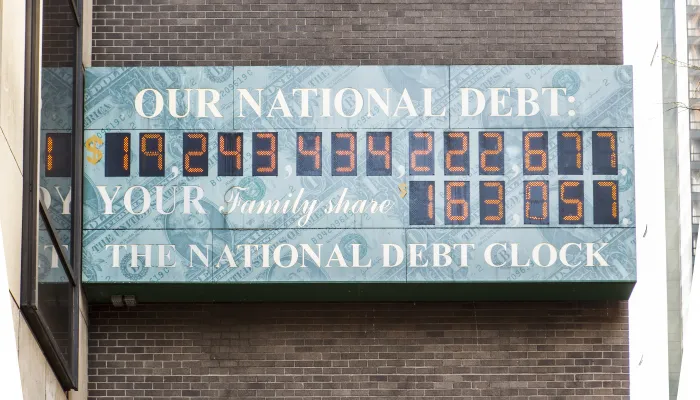Economists' Survey: Long Term, Not the Short Term, Should Be the Focus
The National Association for Business Economics (NABE) conducted its semi-annual survey recently, surveying 220 economists on questions of fiscal, monetary, and regulatory policy. On fiscal policy, they showed remarkable consensus that the long-term deficit, rather than the short-term deficit, is the government's primary fiscal challenge.
In the survey, only 6 percent of economists thought that there was no fiscal challenge facing the federal government, and only 12 percent thought that the current deficit was the primary challenge. Meanwhile 37 percent of economists thought that ten-year deficits were the main issue, and 43 percent thought that deficits beyond this decade were the primary concern.

Source: NABE
In terms of addressing the longer-term deficit, a plurality (39 percent) favored a mix of tax increases and spending cuts, while 32 percent favored mostly spending cuts, and 20 percent favored policies to encourage economic growth. In terms of what specifically should be done, 43 percent of economists favored targeting federal health care spending while 19 percent offered up defense and 18 percent wanted to tackle other entitlement programs. Of course, those surveyed could have also favored addressing multiple areas. In terms of taxes, 42 percent favored broadening the individual and corporate tax bases, while smaller groups favored a carbon tax or a value-added tax.
Perhaps the most salient result of the survey is that more than two-thirds of economists thought that uncertainty over fiscal policy was holding back the economic recover. Given the events coming up in the fall, that issue will be brought to the forefront once again. But judging by the results of the survey, at least a plurality of economists favor easing up on the deficit reduction pedal (i.e. the sequester) in the short term and making changes to entitlement programs and the tax code to make the long-term fiscal picture sustainable.


